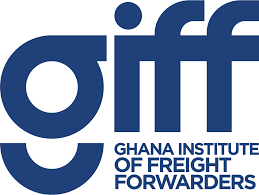
Key players in the logistics and trade sectors will embark on a massive protest against the shipping lines operating in the country on Tuesday September 24, 2024.
The Ghana Institute of Freight Forwarders (GIFF), the Association of Customs House Agents of Ghana, Freight Forwarders Association of Ghana, and the Customs Brokers Association of Ghana, in collaboration with several trade associations and concerned stakeholders, will lead a peaceful demonstration to highlight exploitative practices by shipping lines operating within the country.
Key Issues Raised
In a press release jointly signed by all the leadership of the various associations, they averred that the protest is to make known their concerns on a range of issues they believe are negatively impacting the cost of doing business in Ghana. Chief among their complaints is the imposition of arbitrary charges such as local administrative fees, container cleaning fees, and empty container fees. According to the organizers, these charges, which are pegged to the dollar, violate the Bank of Ghana’s regulations on pricing of locally derived services.
Furthermore, the protestors are calling for the immediate cessation of demurrage charges on weekends and public holidays, which they argue unfairly penalize businesses during non-working days when clearance processes are halted. They are demanding a refund of all demurrage fees that have been levied during these periods, insisting that the charges are unjustifiable and harmful to businesses.
Forex Leakages and Economic Impact
The protest organizers also raise concerns over the repatriation of forex earnings by shipping lines, which they claim is contributing to the country’s foreign exchange difficulties.
According to the press release issued by the coalition, the excessive and unjust fees collected by shipping lines and then repatriated abroad are depleting Ghana’s forex reserves. This, they argue, weakens the local currency and further burdens the national economy, making it harder for Ghanaian businesses to compete both locally and internationally.
“These practices have stifled the potential growth of Ghana’s shipping sector, severely impacting businesses and crippling the financial well-being of numerous stakeholders within the supply chain,” the statement said.
Wider Implications on Cost of Living
Beyond the direct impact on businesses, the organizers believe these exploitative practices are affecting the average Ghanaian. The increased cost of doing business, caused by the arbitrary charges imposed by shipping lines, trickles down to consumers, driving up the cost of imported goods. This situation, they say, contributes to the already high cost of living in Ghana.
The protest organizers are making the following demands.
- Abolishing demurrage charges on weekends and public holidays, and refunding businesses for demurrage fees paid during those periods.
- Compelling shipping lines to negotiate tariffs in accordance with Regulation 5 of the Ghana Shippers’ Authority Regulations, 2012 (L.I. 2190).
- Eliminating arbitrary fees, including local administrative charges, container cleaning fees, and empty container fees.
- Ensuring that shipping lines provide 24-hour services throughout the week, including weekends and public holidays, to avoid unnecessary delays.
- Stopping shipping lines from engaging in customs house brokerage, which they claim disadvantages freight forwarders and stifles competition.
- Prohibiting the pegging of shipping line fees to the US dollar, in line with Bank of Ghana regulations.
A Call for National Support
The protest organizers urged the general public and government authorities to lend their support to the cause. They believe that holding shipping lines accountable will not only improve the efficiency of Ghana’s logistics and supply chain but also help stabilize the local currency and lower the cost of goods for consumers.
“This is not just an industry issue — it’s a national issue,” the organizers stated. “The outcome of this protest has the potential to reshape the operational landscape of commerce in Ghana, potentially stabilize the exchange rate, significantly increase the standard of living of every Ghanaian, and mitigate the national security ramifications of the cost of living crisis,” the statement noted.
The collective action by the freight forwarders, backed by trade associations and concerned stakeholders, is seen as a crucial moment in the fight for transparency, fairness, and efficiency within Ghana’s maritime and logistics sectors. The protest comes as many businesses in the country struggle with rising operational costs, and the demonstrators believe that this issue, if left unchecked, will have dire consequences for Ghana’s economic future.
The converging point for the demonstration is the GIFF premises in Tema and it’s expected to draw large numbers of participants from across the country, with the potential to significantly impact the operations of shipping lines in Ghana.

